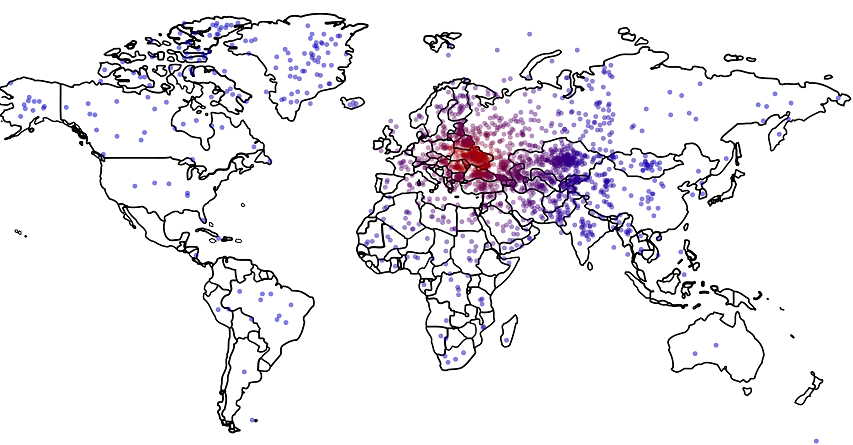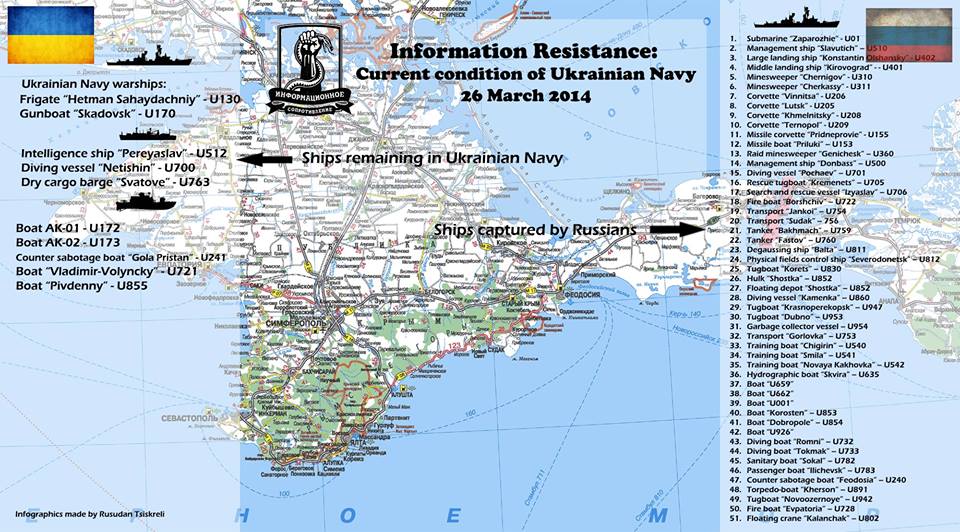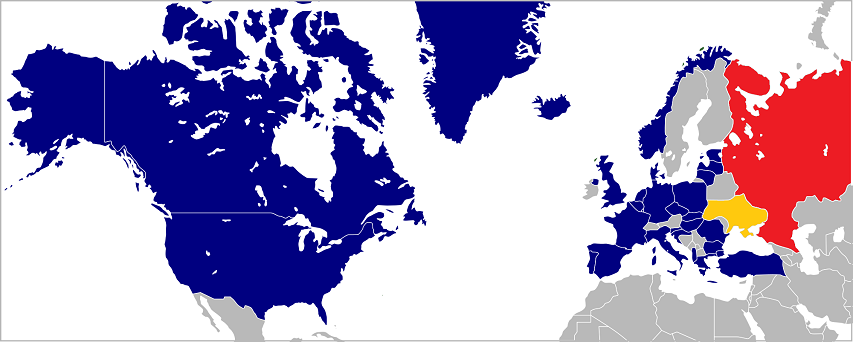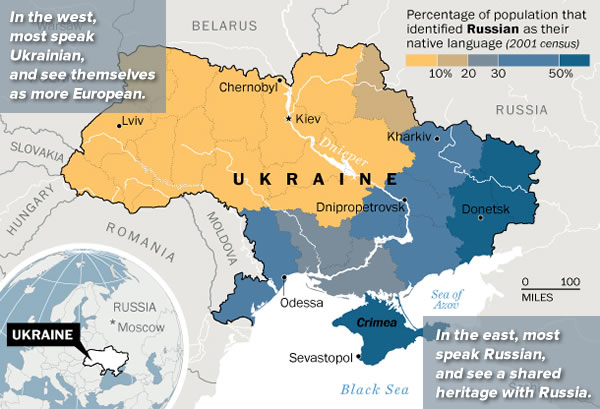In the Telegraph, former UK ambassador Charles Crawford says that Vladimir Putin is using Ukraine as a testing ground for rebuilding a new Russian empire:
Russian President Vladimir Putin visits the Cosmonautics Memorial Museum on April 11, 2014 in Moscow, Russia. Russia celebrates the Cosmonaut Day, marking the pioneering flight into space of Yuri Gagarin on April,12,1961.
It is no exaggeration to say that the historic deal that ended the Cold War is now unravelling. That deal was simple. Russia itself (largely on its own initiative) ended the Soviet Union in favour of a bold democratic modernisation process to be achieved in partnership with Western capitals. Confrontation in Europe and around the world would be replaced by cooperation. Huge sums of Western money would be made available to Russia on generous terms, to help it move from communism to sane economic and security policies. All the other Soviet republics would become independent countries and begin their own transitions in a similar partnership spirit.
[…]
Outside Russia’s already vast borders Putin is throwing down a momentous challenge to the rest of the world: “What if Russia drops all this namby-pamby European soft-power rubbish and decides instead to reclaim one way or the other historic Russian lands?”
That question does not fit any category of thinking that today’s Western leaders and their advisers can muster. Western leaders have come to see agreed rules and interminable meetings as a source of strength. Putin sees agreed rules and boring meetings as a source of weakness. Hence the Western and wider international response is muted and uncertain. The focus is on stepping up “economic pressure” on Russia in general and key Russians in particular. There is logic to this. Europe needs Russian energy, but Russia needs European money. Russia really has moved on from the Cold War period and joined the international marketplace. It ought to be impressed by the threat of investment bans and other targeted financial measures.
That approach does not, however, address the key problem. Putin might see the Russian economy hurting and ask Russians another question: “What if we reclaim historic Russian lands but at the cost of eating turnips again for a while?” A noisy majority of Russians might think that that is a sacrifice well worth making. This gives Putin hard policy options unavailable to Western leaders, for whom any equivalent question would be electoral suicide.
Ukraine is now the luckless space where Putin is experimenting with different ways to roll back the Cold War settlement and then reassert Russian imperial power in other parts of the former Soviet Union. Crimea has been annexed, but the rest of Ukraine is far bigger and much more complicated. All sorts of methods are being deployed both in Ukraine and through a sophisticated global propaganda operation to destabilise Ukraine. The key immediate goal is to make Ukraine ungovernable except on Russia’s terms. This means preventing a new legitimate government emerging in the forthcoming elections.







